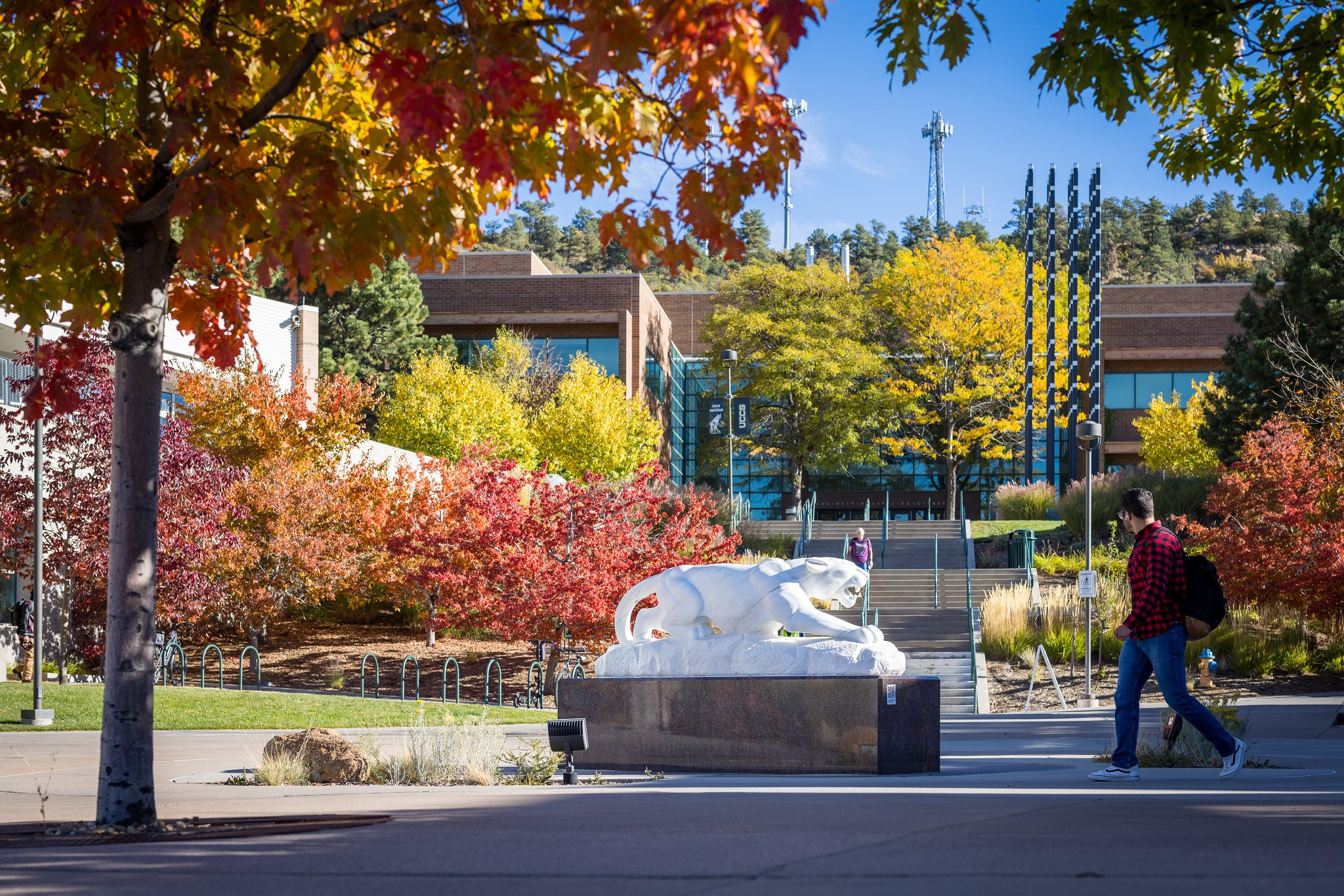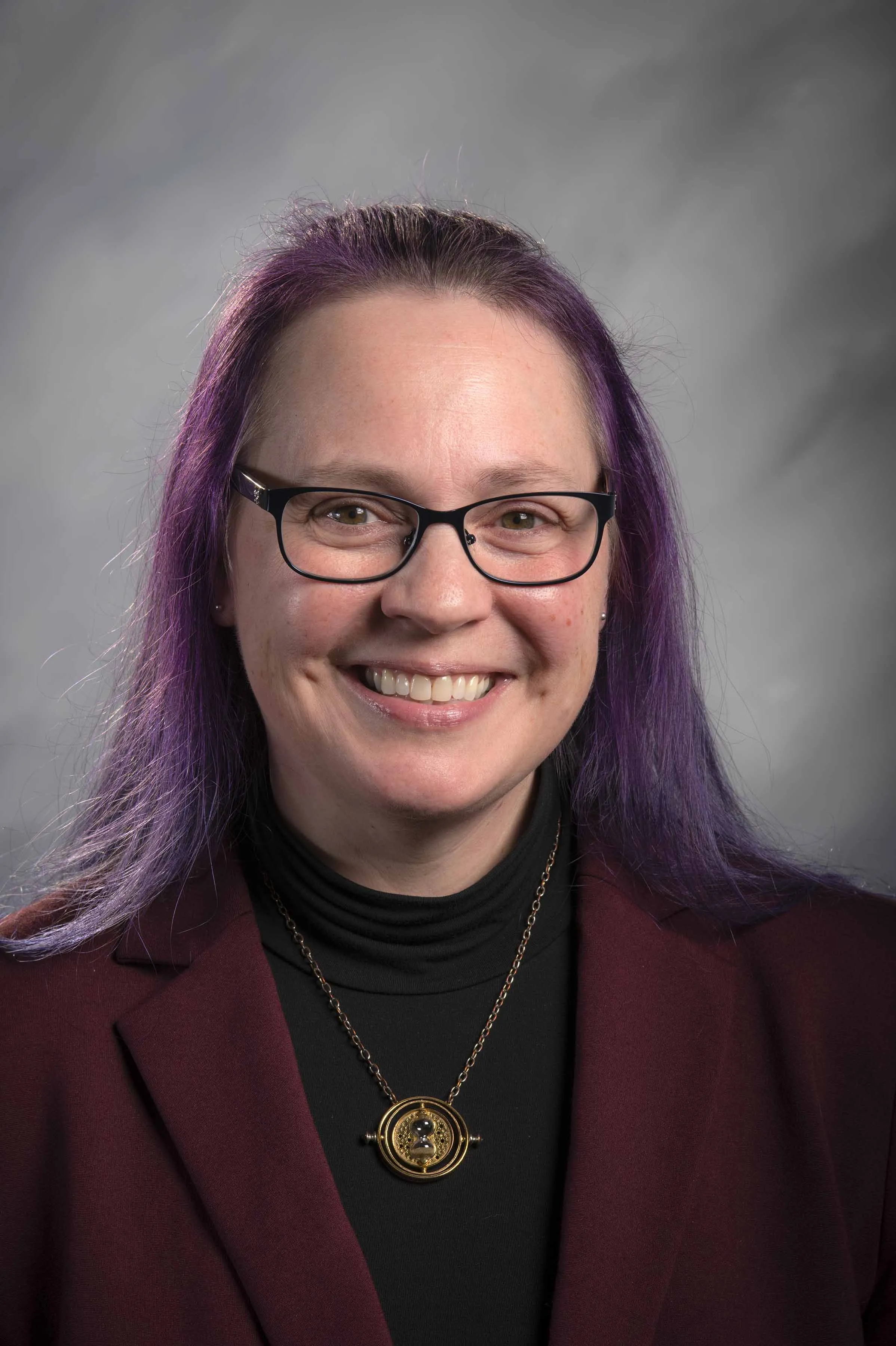

Katie Anderson-Pence, PhD
Associate Professor, Associate Dean for Academic and Faculty Affairs Teaching and LearningBiographical Information
Katie L. Anderson-Pence is an Associate Professor in the Department of Teaching & Learning in the College of Education at the University of Colorado at Colorado Springs. She teaches courses in Elementary Mathematics Education the Teacher Education Program. Katie received her Ph.D. in Curriculum and Instruction with an emphasis in Mathematics Education and Leadership from Utah State University in 2014. Her research interests include: technology—including virtual manipulatives, classroom discourse, and teacher development. She joined the Teacher Education Program at UCCS in 2014.
Education
Ph.D. – Curriculum and Instruction with an emphasis in Mathematics Education and Leadership, Utah State University (2014).Dissertation: Examining the Impact of Different Virtual Manipulative Types on the Nature of Students’ Small-Group Discussions: An Exploratory Mixed Methods Case Study of Techno-Mathematical Discourse.
M.Ed. – Elementary Mathematics Education, Southern Utah University (2007).
B.S. – Elementary Education, Brigham Young University (2000).
Fluent in Portuguese.
Teaching
Undergraduate Courses
IECE 4000 Math and Numeracy in the Early Childhood Inclusive Classroom
IELM 4025 Teaching Elementary Mathematics
Graduate Courses
CURR 5090 Masters Research Project
CURR 5301 Mathematical Connections and Concepts
CURR 5312 Mathematics for Teaching: Algebraic Reasoning
Professional Experience
Higher Education
Utah State University (2009–2014)
- University Instructor
- Graduate Research Assistant
- University Supervisor of Student Teachers, Elementary Education Program
K-12 Teaching
Alpine School District, American Fork, UT (2000–2011)
- Elementary School Teacher, Grades 3, 4, & 6
- District Mathematics Specialist, Grades 5–6
Publications
Selected Journal Articles (Refereed)
- Anderson-Pence, K. L., (2020). Virtual manipulatives: Making effective instructional choices. Colorado Mathematics Teacher, 53(1), Article 3. https://digscholarship.unco.edu/cgi/viewcontent.cgi?article=1012&context=cmt
- Anderson-Pence, K. L., Tygret, J. A., & Croker, L. (2020). Leveraging tutorial instructional software to enhance classroom mathematical discussions: An exploratory mixed-methods study. Educational Research: Theory and Practice, 31(3), 74-93. http://www.nrmera.org/wp-content/uploads/2020/11/6-Anderson-Pence-et-al-Leveraging-Tutorial-Instructional-Software.pdf
- Anderson-Pence, K. L. (2017). Techno-mathematical discourse: A conceptual framework for analyzing K-12 classroom discussions. Education Sciences, 7(1), 40. doi:10.3390/educsci7010040
- Moyer-Packenham, P. S., Bullock, E., Shumway, J. F., Tucker, S. I., Watts, C. M., Westenskow, A., Anderson-Pence, K. L., Maahs-Fladung, C., Boyer-Thurgood, J., Gulkilik, H., & Jordan, K. (2016). The role of affordances in children’s learning performance and efficiency when using virtual manipulative mathematics touch-screen apps. Mathematics Education Research Journal, 28(1), 79–105. doi:10.1007/s13394-015-0161-z
- Anderson-Pence, K. L., & Moyer-Packenham, P. S. (2016). The influence of different virtual manipulative types on student-led techno-mathematical discourse. Journal of Computers in Mathematics and Science Teaching, 35(1), 5-31.
- Anderson-Pence, K. L., Moyer-Packenham, P. S., Westenskow, A., Shumway, J., & Jordan, K. (2014). Relationships between visual static models and students’ written solutions to fraction tasks. International Journal for Mathematics Teaching and Learning, 15, 1-18. PDF Here
- Moyer-Packenham, P.S., Baker, J., Westenskow, A., Anderson-Pence, K.L., Shumway, J.F., and Jordan, K.E. (2014). Predictors of achievement when virtual manipulatives are used for mathematics instruction. REDIMAT–Journal of Research in Mathematics Education, 3(2), 121-150. doi: 10.4471/redimat.2014.46
- Anderson-Pence, K. L. (2015). Teachers’ perceptions of examining student thinking: Changing mathematics instructional practice. Cogent Education, 2(1), 1075329. doi:10.1080/2331186X.2015.1075329
- Westenskow, A., Moyer-Packenham, P. S., Anderson-Pence, K., Shumway, J. F., & Jordan, K. (2014). Cute drawings? The disconnect between students’ pictorial representations and their mathematics responses to fraction questions. International Journal for Research in Mathematics Education, 1(1), 81-105.
- Anderson-Pence, K. L., (2013) Ethnomathematics: the Role of Culture in the Teaching and Learning of Mathematics. Utah Mathematics Teacher, 6, 52-61.
Selected Presentations
- Anderson-Pence, K., & Swanson, K. (2021, October). Evolving Without Multiplying your Work: Science and Math Methods During COVID. Suddenly Online Presentation. School Science and Math Association (SSMA) Annual Convention. (virtual conference)
- Anderson-Pence, K. (2021, October). Leveraging Tutorial Instructional Software to Enhance Classroom Mathematical Discussions. Paper Presentation. Northern Rocky Mountain Educational Research Association (NRMERA). Sun Valley, Idaho.
- Mitchell, R., & Anderson-Pence, K. L. (2020, November). They Want to Go There: Preservice Teacher Interest in Rural Careers. Research Session. National Rural Education Association (NREA) National Forum to Advance Rural Education. (virtual conference)
- Anderson-Pence, K. L. (2019, November). Enhancing Mathematics Instruction in Rural Schools: A Year-long Professional Development Experience. Regular Session. School Science and Math Association (SSMA) Annual Convention. Salt Lake City, Utah.
- Moyer-Packenham, P. S., Bullock, E., Shumway, J. F., Tucker, S. I., Watts, C. M., Westenskow, A., Anderson-Pence, K. L., Maahs-Fladung, C., Boyer-Thurgood, J., Gulkilik, H., & Jordan, K. (2016, April). Using Virtual Manipulatives on iPads to Promote Young Children’s Mathematics Learning. Annual Meeting of the American Educational Research Association (AERA). Washington, DC.
- Anderson-Pence, K. L. (2015, October). Virtual Manipulatives and Math Talk: An Examination of Techno-Mathematical Discourse. Research Presentation. School Science and Math Association (SSMA) Annual Convention. Oklahoma City, Oklahoma.
- Anderson-Pence, K. L., & Moyer-Packenham, P. S. (2015, April). Using Virtual Manipulatives to Enhance Collaborative Discourse in Mathematics Instruction. Paper Session. Annual Meeting of the American Educational Research Association (AERA). Chicago, Illinois.
Awards
- Outstanding Teacher, College of Education, University of Colorado Colorado Springs (2019)
- Outstanding Researcher, College of Education, University of Colorado Colorado Springs (2016)
- Graduate Research Assistant of the Year, Department of Teacher Education and Leadership, Utah State University (2013)
- Mathematics Education Delegation, People to People Ambassadors. São Paulo, Brazil, Rio de Janeiro, Brazil (2011)
- Presidential Award for Excellence in Mathematics and Science Teaching FINALIST, Utah State Office of Education (2007)
- Mathematics Education Delegation, People to People Ambassadors. Cairo, Egypt (2007)